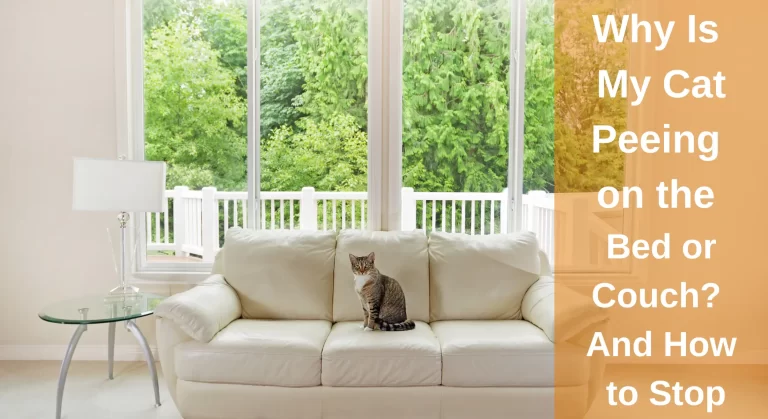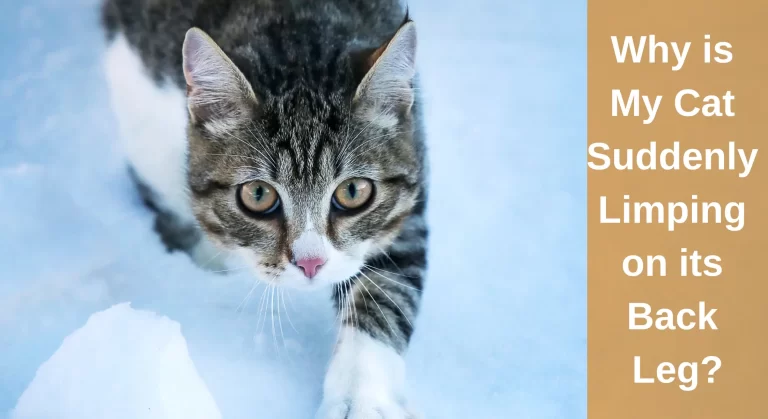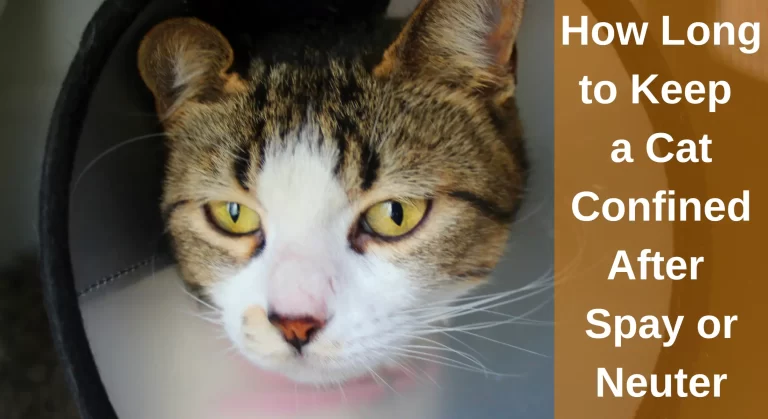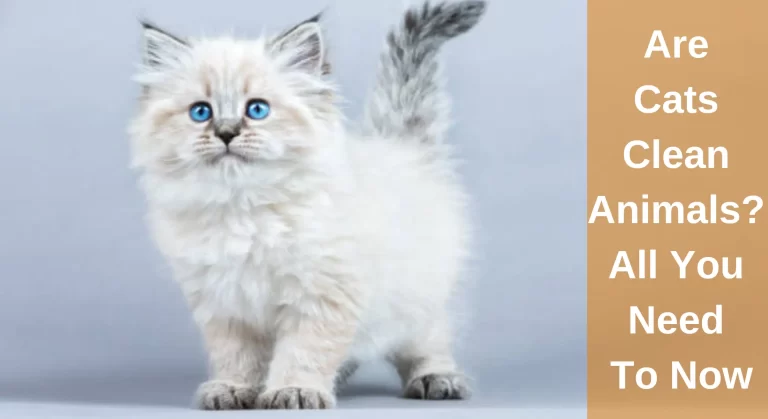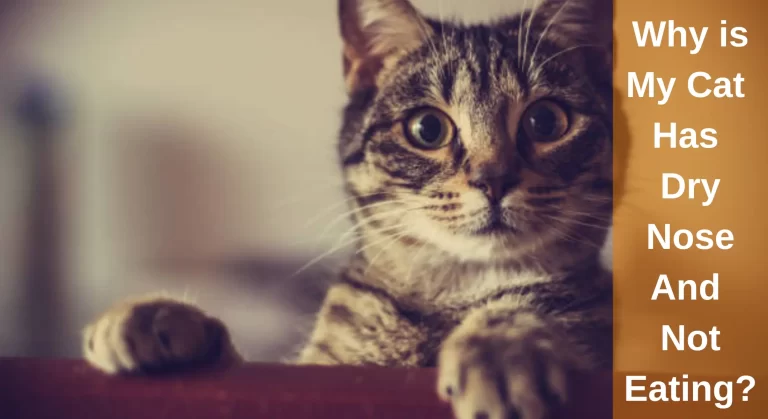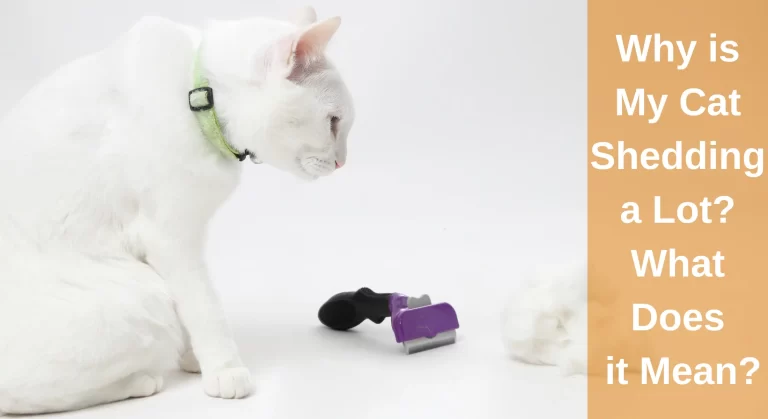Best Flea Treatment for Kittens Under 12 Weeks
Kittens are by far the cutest, most playful pets one can have. It is rewarding to watch them grow from tiny, feisty creatures to more laid-back and chill adult cats. However, they come with great responsibility, especially if they catch fleas. Fleas are annoying, pesky parasites that love to feed off of cats and dogs, and they won’t spare kittens either.
You may have seen flea treatments in your local pet store and wonder if you should pick one up for your kitten. What’s the best flea treatment for kittens under 12 weeks?
Using a flea comb on kittens under 8 weeks once or twice a day s the most effective way to prevent fleas. Just like children cannot have adult medications, topical flea treatment should never be used on kittens younger than 8 weeks or less than 2 lbs. Special formulations exist for kittens aged 8-12 weeks; only those should be used if your kitten falls into this bracket. For smaller kittens, natural methods are best for dealing with fleas.
In this article, we’ll dive deep into the best flea treatment options for kittens under 12 weeks, what to look for in a product, and how to safely administer treatment.

Why Flea Treatment is Important for Kittens Under 12 Weeks
Fleas are troublesome parasites that live in your feline’s coat and survive on their blood. So other than itching, biting, and discomfort, what is the worst that could happen if your furball’s flea infestation went untreated?
Flea treatment is especially important for kittens under 12 weeks because their immune systems are not yet fully developed, making them more susceptible to flea-borne illnesses.
Because of their yet-to-develop grooming capabilities, fleas multiply faster in kittens than they do in adult cats. Due to their low body mass, kittens don’t have as much blood as grown-up cats.
Still, they desperately need it to provide nutrients for their rapid growth and to support their fast metabolism. Fleas in baby cats can quickly lead to a condition called anemia, which is an abnormally low red blood cell count.
Without the required number of red blood cells in your feline’s system, its body will not get the oxygen it needs, forcing the heart to work harder and exhibiting signs and symptoms like pale gums and lethargy. With further blood loss, the condition can quickly become deadly as kittens don’t have much blood to begin with.
How Can I Tell if My Kitten has Fleas?
Your kitten will exhibit the following tell-tale signs if it has fleas:
- Excessive scratching
- Restlessness
- Biting itself
- Spots of hair loss
- Pale gums
- Lethargy
- Black specs in its fur
Interesting Reading: How To Get Rid of Fleas in the House?
What Age Should Kittens Have Flea Treatment?
When it comes to kittens, you need to move cautiously, as treatments tolerated by adult cats might be hazardous for baby felines. The treatment can cause irritation to their skin or be too high of a dose for their tiny bodies.

Generally speaking, it is safe to use flea treatments on kittens that are 12 weeks or older. If you have a kitten from the age of 8 weeks or older, you have nothing to fret about, as specialized flea treatments are available that are tailored to kittens of 8 weeks.
This is great since most kittens are adopted by ages 8 weeks and older, so there is a great chance that you can find age-appropriate flea treatment.
However, if you have younger kittens on your hands with flea infections, it is best to decide by their weight. Kittens that weigh 2 lbs or more qualify for flea treatment. Kittens that are tinier than that will need to have their fleas removed manually with a flea comb.
It’s important to read the label of the flea treatment carefully to determine the minimum age at which it can be used. Some flea treatments may have a higher minimum age requirement, such as 12 weeks of age or older.
Also, Check Out: Should I Quarantine My Cat With Tapeworms
What Should I Do if My Kitten has Fleas?
You will need to assess the situation according to its age and weight. Kittens over 2 lbs or 8 weeks old can receive topical flea treatment, the most effective treatment for these parasites.
If your kitten is smaller than that, you will need to flea comb your kitten regularly and give it regular baths with kitten-friendly flea shampoos.
check out: My Kitten is Weak And Sleepy – How to Care for a Sick Kitten
How to Get Rid of Fleas on Kittens? Natural Methods to Get Rid of Fleas on Young Kittens
The most effective treatment is topical flea medication, which cannot be used for kittens under 2 lbs. The best treatment for kittens really depends on their age. Listed below are some options you can decide from:

1. Flea Combs
The safest method for removing fleas from kittens is using flea combs. Flea combs can be used on kittens as early as 2 weeks old.
You can easily get a flea comb at a pet store. It contains very narrow and tightly placed bristles that catch adult fleas as you comb through your kitten’s coat. As this is simply just combing your kitten, there are no side effects or irritations like topical flea medication.
You will need to do this several times and be patient, though, because flea eggs are less than 0.5cm in diameter, so they will not be picked up by one combing session.
If you consistently comb sessions, you will hopefully pick them out before they reproduce, eventually leaving your kitten flea-free.
2. Flea Baths
Bathing your kitten is a great way to maintain adequate hygiene in kittens who have not yet mastered self-grooming.
Additionally, it works well for eliminating fleas. You need to be mindful about using flea shampoos intended for use on adult cats, as the chemicals in them might be too harsh for a kitten below the age of 12 weeks. When it comes to bathing kittens, here are a few other things to be mindful of:
- Never bathe a kitten more than twice a week, as it can irritate their delicate skin.
- Always check the bath water on your wrist before bathing your kitten.
- Make sure the bath water is lukewarm.
- Dry your kitten as soon as the bath is over and keep it warm, as kittens cannot maintain their body temperature.
- Only use a shampoo specifically made for kittens only.
3. Topical Flea Medication When Your Kitten Is Old Enough
Topical flea medication has proven to be the most effective treatment for flea-infested cats. Your kitten needs to be above 12 weeks to receive this treatment.
Part the fur on the back of your kitten’s head, exposing the skin. This is the area that your pet cannot groom, so the medication will last longer.
Remove the cap, seal the medication tube, and apply the dose directly onto your cat’s skin. Make sure to keep the area dry for the next 24 hours. A dose of ointment applied once is effective for a month.
4. Vacuuming
Vacuuming your home frequently can help get rid of fleas and flea eggs. Be sure to vacuum carpets, furniture, and other areas where fleas may be present. Empty the vacuum’s contents outside to prevent fleas from re-entering your home.
5. Washing Bedding
Washing your kitten’s bedding in hot water can help get rid of fleas and flea eggs. Be sure to wash all bedding and blankets your kitten uses and any other fabrics in your home that may be contaminated with fleas.
Also Read: Why My Cat Has Scabs on Its Neck But No Fleas?
Tips for Safely Administering Flea Treatment
No matter which flea treatment you choose, it’s important to follow these tips to ensure your kitten’s safety:
1. Read the Instructions Carefully
Before administering any flea treatment, read the instructions carefully and follow them exactly as directed.
2. Monitor for Side Effects
Keep a close eye on your kitten for signs of an adverse reaction to the flea treatment, such as vomiting, diarrhea, or excessive drooling. If you notice any unusual symptoms, contact your veterinarian immediately.
3. Keep Your Kitten Indoors
After administering flea treatment, keeping your kitten indoors for at least 24 hours is important. This will prevent them from coming into contact with other animals or potentially harmful substances.
4. Don’t Over-Apply
Using more flea treatments than recommended can be dangerous for your kitten. Follow the recommended dosage based on your kitten’s age and weight.
5. Don’t Combine Treatments
Using multiple flea treatments at once can be harmful to your kitten. Stick to one treatment method at a time.
Tips for Choosing Flea Treatment for Kittens
If you think flea medication is the way to go, there are some things to be mindful of. Besides, even at 12 weeks, kittens are more delicate and smaller than adult felines, so you cannot use typical adult cat medicine.
The following will help you select the right product for your baby cat:

1. Use Kitten-Specific Product (Approved Product)
This is a no-brainer, but you should use flea medicine specifically made and tested on kittens. Even so, no product should be used on kittens less than 2 lbs in weight or less than 4 weeks of age.
Flea medicine has not been tested on kittens less than 4 weeks, so you do not want your cat babies getting any unknown side effects.
2. No Essential Oils
Many manufacturers producing flea treatments with essential oils claim that it is way more effective than typical ones. This is far from the truth, as essential oils are toxic for cats.
If your cat accidentally ingests these products, they can poison your cat. Kittens have smaller bodies, so they can get poisoned more easily.
3. No Permethrin
Permethrin is extremely effective at killing ticks; however, it is also very toxic for cats. Permethrin is only used in flea treatment for dogs, so watch out for this compound if you are a cat parent.
What’s the Best Kitten Flea Treatment?
The best flea treatment for kittens under 12 weeks old will depend on various factors, including the flea infestation’s severity, the kitten’s age and weight, and any underlying health conditions. Some of the most commonly recommended flea treatments for kittens under 12 weeks old include:

- Frontline Plus: Frontline Plus is a topical flea treatment safe for kittens as young as 8 weeks old. It works by killing adult fleas and preventing new flea infestations for up to 30 days.
- Advantage II: Advantage II is a topical flea treatment safe for kittens as young as 8 weeks old. It works by killing adult fleas and preventing new flea infestations for up to 30 days.
- Capstar: Capstar is an oral flea medication safe for kittens as young as 4 weeks old. It kills adult fleas within 30 minutes and provides up to 24 hours of protection.
- Program: The program is an oral medication safe for kittens as young as 6 weeks old. It prevents flea eggs from hatching and can be given once a month to prevent new flea infestations.
When choosing a flea treatment for your kitten, it is important to consult with your veterinarian to determine the best option for your kitten’s individual needs. Additionally, it is important to follow the instructions carefully and monitor your kitten for any signs of an allergic reaction or other adverse effects.
Frequently Asked Questions
What if my kitten’s too young for flea treatments?
If your kitten is too young for flea treatments, taking other steps to prevent flea infestations is important. Here are some tips:
1. Regularly groom your kitten: Grooming your kitten regularly with a flea comb can help remove any fleas or flea dirt from their coat. This can help prevent flea infestations and keep your kitten comfortable.
2. Keep your kitten indoors: Keeping your kitten indoors can help prevent exposure to fleas and other parasites.
3. Treat your home: Even if you can’t see fleas on your kitten, they may still be present in your home. Vacuuming carpets, furniture, and other areas where your kitten spends time can help remove flea eggs and larvae. You may also want to use a flea spray or fogger to kill any remaining fleas in your home.
4. Consult with your veterinarian: If you’re concerned about flea prevention for your young kitten, it’s always a good idea to consult with your veterinarian. They can recommend safe and effective flea prevention methods for your kitten’s age and weight.
I can’t see any fleas – should I still use a flea treatment on my kitten?
If you can’t see any fleas on your kitten, using a flea treatment may not be necessary. However, it’s important to remain vigilant and take steps to prevent flea infestations, as fleas can quickly reproduce and become a major problem.
Can I use a flea treatment designed for adult cats on kittens?
No, flea treatment designed for adult cats can be harmful to kittens. Use flea treatment that is specifically designed for kittens.
How often should I administer flea treatment to my kitten?
The frequency of flea treatment for your kitten will depend on the specific product you are using and your kitten’s age. Some flea treatments may need to be applied monthly, while others may last longer.
It’s important to read the label of the flea treatment carefully and follow the instructions for application and frequency. Additionally, it’s always a good idea to consult with your veterinarian about the best flea treatment and administration schedule for your kitten’s age and weight.
Are natural flea treatments safe for kittens?
Some natural flea treatments may be safe for kittens, but it’s important to research the ingredients and consult with your veterinarian before using them.
Can you use Dawn on kittens for fleas?
Yes, Dawn dish soap can be used on kittens for fleas. A bath with Dawn dish soap can help eliminate fleas on kittens. However, it’s important to use only a small amount of soap and to be very gentle when bathing your kitten. You should also rinse your kitten thoroughly with warm water and keep them warm and dry after the bath.
Are flea collars safe for kittens?
Flea collars can be safe for kittens, but using ones specifically designed for those under 12 weeks old is important. Follow the instructions carefully and monitor your kitten for any signs of an allergic reaction.
Final Words!
Flea treatment for kittens under 12 weeks can be daunting, but it’s crucial for keeping your furry friend healthy and comfortable. When choosing a flea treatment, be sure to consider age and weight requirements, active ingredients, and application methods.
Kittens more than 2 lbs can receive conventional flea treatment. In contrast, younger and smaller kittens will need more natural methods like flea combing and baths. If you notice your kitten scratching, you need to start treatment as soon as possible, as an untreated flea infection can be deadly in kittens. With consistent treatment and care, your kitten can be flea free in no time!
Related Posts:
Who is Isabella?
My name is Isabella, and I am a dedicated and knowledgeable cat enthusiast. With years of experience caring for cats and a deep love for felines, I made a mission to help other cat lovers navigate the challenges of cat ownership.

